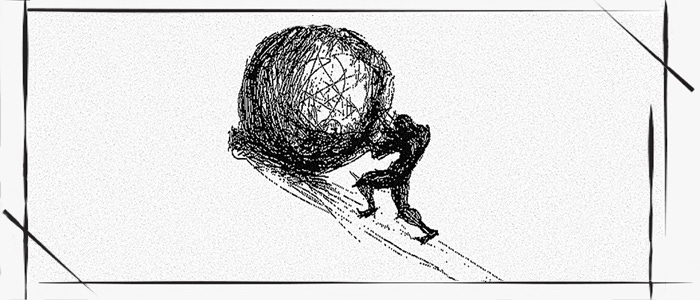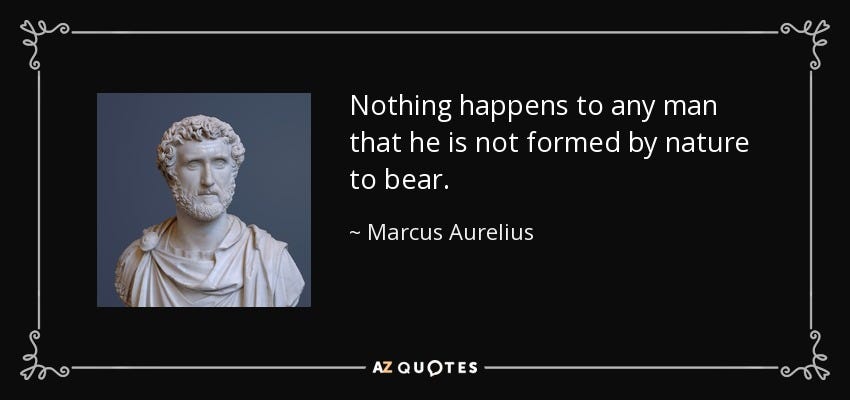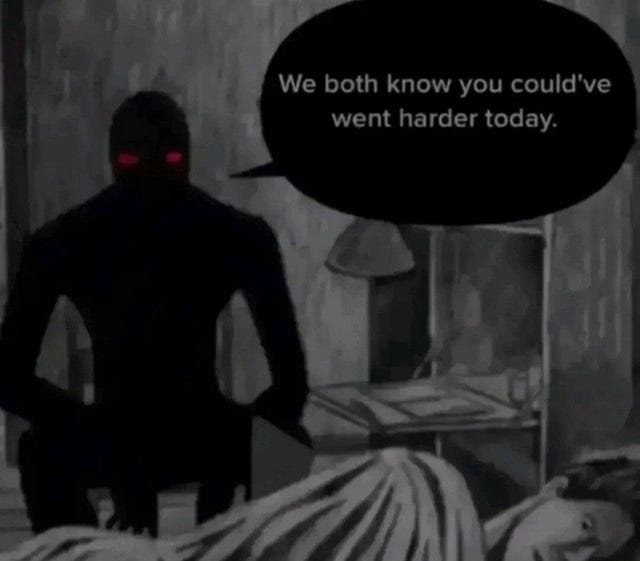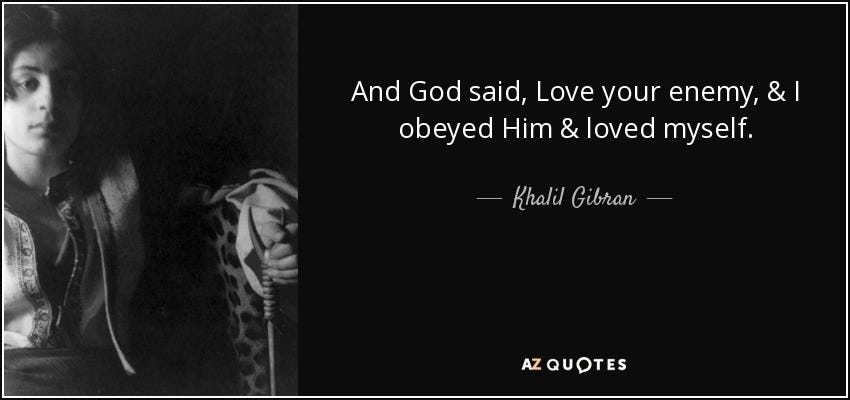
In King, Warrior, Magician, Lover:
The Warrior’s loyalty and his sense of duty are to something beyond and other than himself and his own concerns…He lives not to gratify his personal needs and wishes or his physical appetites but to hone himself into an efficient spiritual machine, trained to bear the unbearable in the service of the transpersonal goal.
We don’t get to choose our circumstances. We are just thrust into existence, a finite timeline in which we experience life before time runs out and the shutter closes. Some are born into wealthy or loving families with the security of assured parental investment; others face poverty, neglect, or adversity.
While our choices charter the course of our existence, the uneven playing field is undeniable. A person born in favorable circumstances may sprint ahead, while others play catchup.
That is life.
Either way, the onus is unto you to play the cards that you have been dealt to the best of your ability.
With a shitty hand, of course, you can hardly do much, but you can still make the most out of it. In a way life demands that you adopt an ‘It is what it is’ or an ‘amor fati’ type of mindset, no matter how dark things may be. For what it’s worth you are alive. You have this existence. You have this breath.
You have another chance to try again at life, and I find that a blessing in itself.
On Responsibility
If you find yourself in difficult circumstances, you may need to work harder than your peers with better hands.
This burden gets accentuated when others depend on you, as you may wish to provide the best you can for them. You want your father to retire, your mother to never be in lack, or you want your younger sibling to have access to the best education available.
You become the steward of their wellbeing, the captain of the ship. You aim to use your faculties to guide the ship to the promised land.
This burden can make your circumstances lonely due to the weight of the hopes and aspirations you carry. The fact that your family or loved ones look up to you can be daunting and it could paralyze us with doubts on whether we are up to the task.
It is as if they are asking you to be a great light tower in the dark stormy night for them. To be a great oak that grew in the darkness that they can depend on. A strong shepherd, to protect them from the fangs of ravenous wolves.
For some in their families, this means transcending from childhood into parenthood – parenting your siblings and parents by extension.
It is a huge ask. It is a great responsibility.

If you find yourself in this position, move with the belief that you can handle it, that you are built for it, that you will figure it out.
You are the captain. You must steer the ship to a destination, but even as captain, you are not immune to the dangers of the sea. You are both captain and passenger, and the way you navigate life affects those on board.
Someone once told me that my greatest duty as a man would be to suffer so that those I care about don’t have to. These words resonate with those who seek to create a sanctuary for those they care about.
This is the kind of devotion that reflects the energy of the Warrior, who fights for a cause beyond himself. While this is benevolent to endure suffering for those you love, it is equally important to not lose yourself in the process.
In your plight to sacrifice for those you love, you may end up causing destruction to others and even yourself.
Raskolnikov’s Tragic Sacrifice
In Crime and Punishment, the main protagonist, Raskolnikov is an extreme example of such a case. Under self-imposed delusions of his “extraordinary” man theory, he kills a pawnbroker, believing it will ultimately benefit his family by alleviating their poverty.
He thinks he can use the stolen money to save his mother and sister from suffering, especially as his sister has planned to sacrifice her happiness and marry for financial security.

However, after he commits the act, he is psychologically tormented by guilt, paranoia, and existential anguish. His mental turmoil exacerbates, leading to bouts of illness and exhaustion. He withdraws from society and isolates himself from his friends and even his family, the people he sought to bear this burden for.
His actions not only cast a shadow upon his family that compounds their suffering with emotional distress but also fracture his sense of self, locking him in a tumultuous inner struggle that leads to his eventual confession and imprisonment.
Such cases exist in the non-fictional world as well. We are well acquainted with murders that were committed in the name of family or love.
The Price of Unchecked Sacrifice
More from King, Magician, Warrior, Lover:
They have a tremendous capacity to endure pain, and they often manage to get an enormous amount of work done… They sacrifice their own lives for the sake of saving others. In the process, they really do a lot of harm – both to themselves and to others who can’t measure up to their impossible standards. They can’t of course measure up to their own standards so they mercilessly abuse themselves
Gilette and Moore describe the phenomenon we recognize as burnout. Those who relentlessly attack the problems in front of them without adequately caring for themselves usually go down a path of self-harm. The compulsion to endure pain and suffering for the sake of others could lead to personal destruction if unchecked.
This is the ‘sadist’ – the warrior’s shadow. It attacks and destroys everything in its wake, even its very own self.

The workaholic who sacrifices their physical and mental health in the pursuit of material wealth is a good example. Even when they have cultivated comfortable conditions for those they care about, they don’t recognize the concept of ‘enough’.
While such motivations may be due to quests to ensure security for their family and generations, they are often masked by perhaps some sense of scarcity. That they need more.
This could stem from the conditions they were raised in, possibly in which they endlessly dedicate themselves to escaping, a pursuit that may never find an end as the goalposts will keep shifting.
A person under sadistic influences whilst compelled by noble actions could very well succeed, but this success can come at their expense.
Being successful and in good health aren’t mutually exclusive. While achieving a good balance may require more nuance, it isn’t impossible.
As You Love Yourself
Love your neighbor as you love yourself.
Matthew 23:39
The first part of this verse is often emphasized, but the latter is perhaps even crucial. Love in itself is an extension of self-love, as to love others, you must first love yourself. Loving others is sharing that self-love with them.
Of course, this shouldn’t be confused with narcissism. Self-love is basically “I matter, and so do you” while narcissism is “I matter more than you.”
If we adequately love ourselves, we will offer the best version of ourselves to others.

Safeguarding our physical, mental, and spiritual health will help us better show up for others. We will create a space where our loved ones can thrive alongside us. We will make better captains, as a depleted captain will only lead his crew to destruction.
Even if they can’t articulate or even conceptualize it, your loved ones need you in your fullness. They want you, not a hollow martyr.
They want you to share with them in the sanctuary of your creation. We are often driven to create a material sanctuary so that they are not in lack, but an emotional sanctuary is just as important, and it’s perhaps what they most need.
You can’t throw money at everything. I have come to learn this on my own terms. At times, wisdom and emotional investment are needed to sail the boat.
By learning to cultivate self-love, you are better able to love those you care about, and you are able to better bear your burden for them, and sacrifice benevolently for them without annihilating yourself.